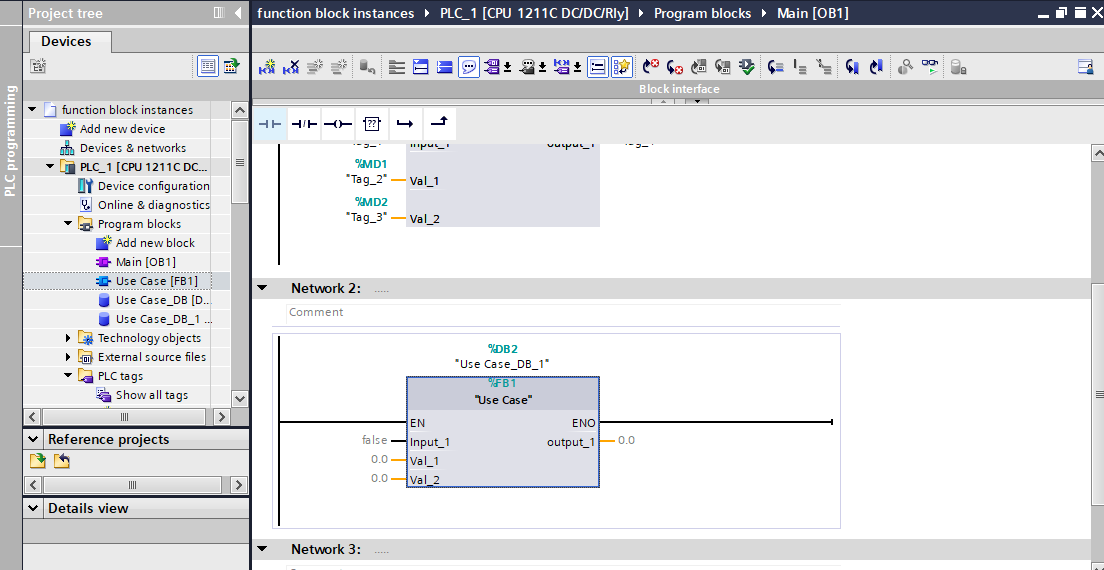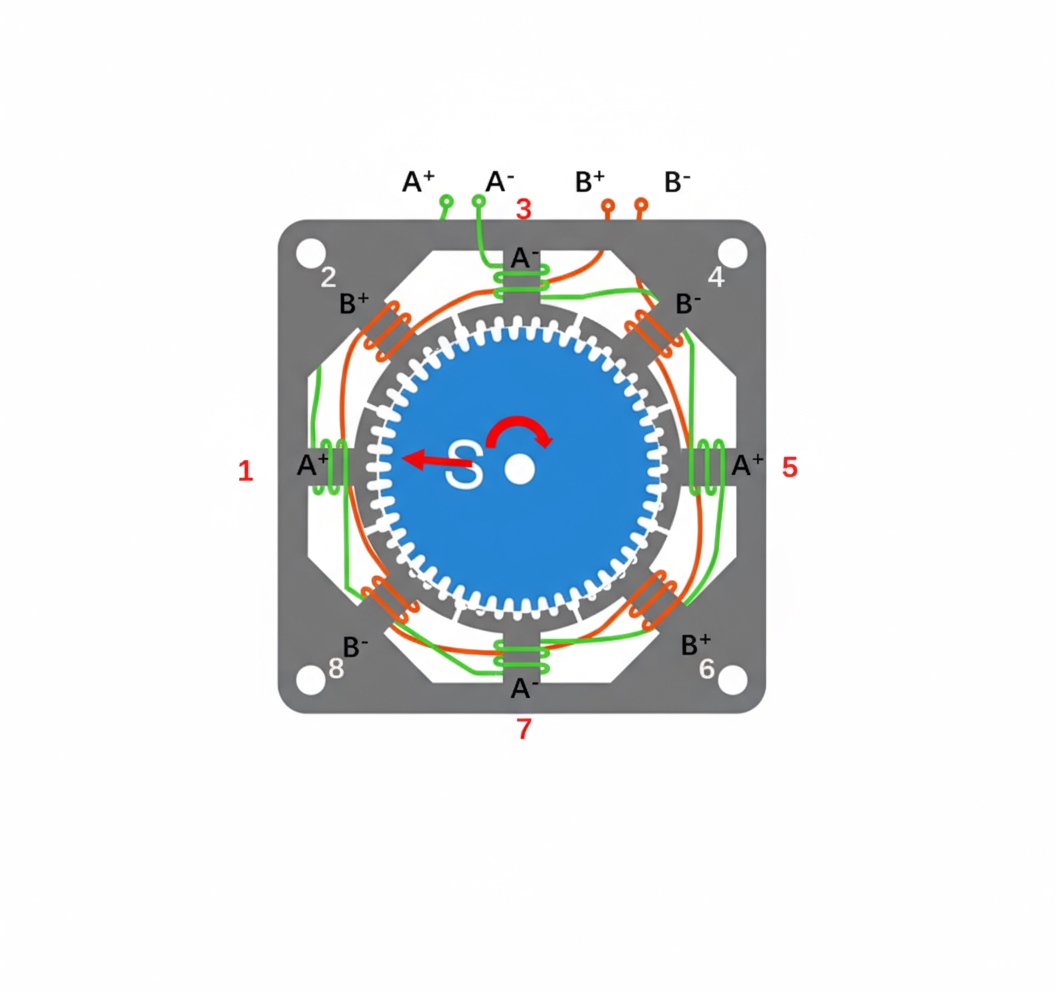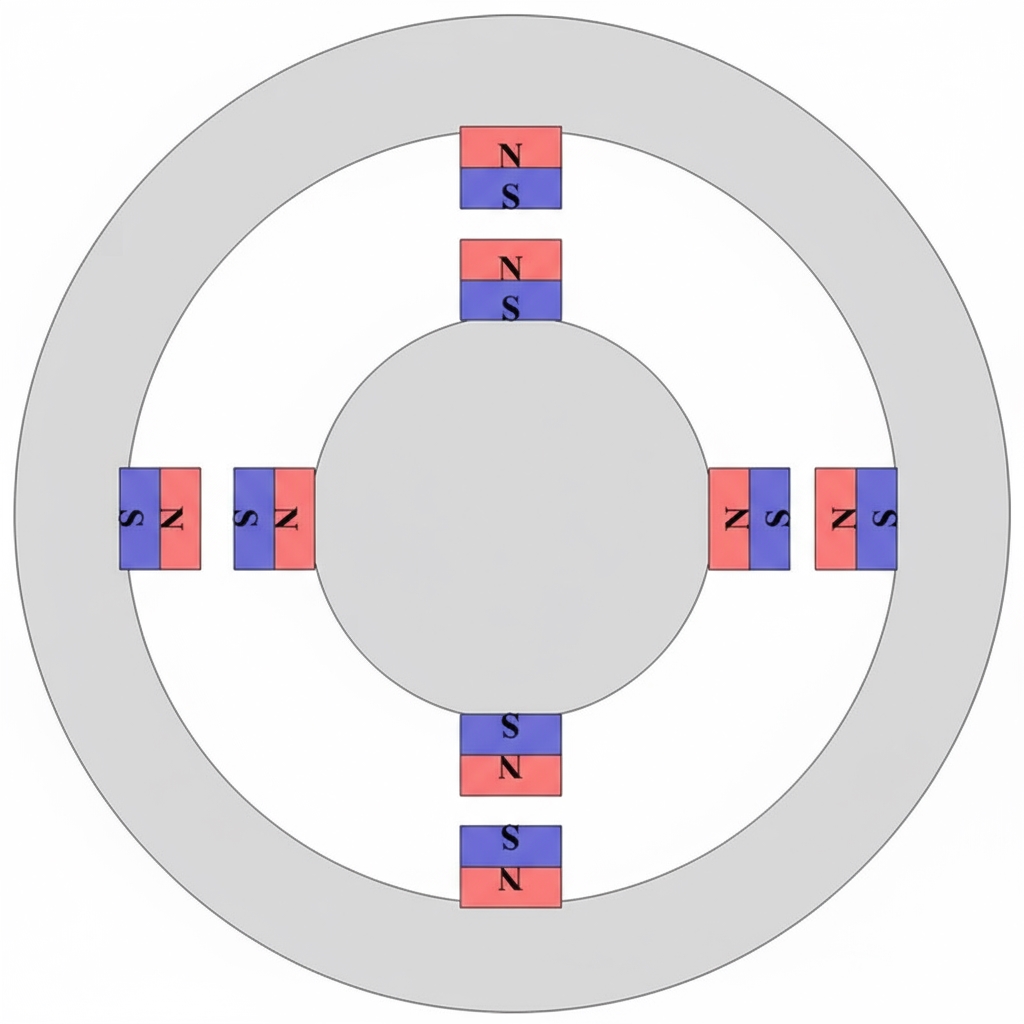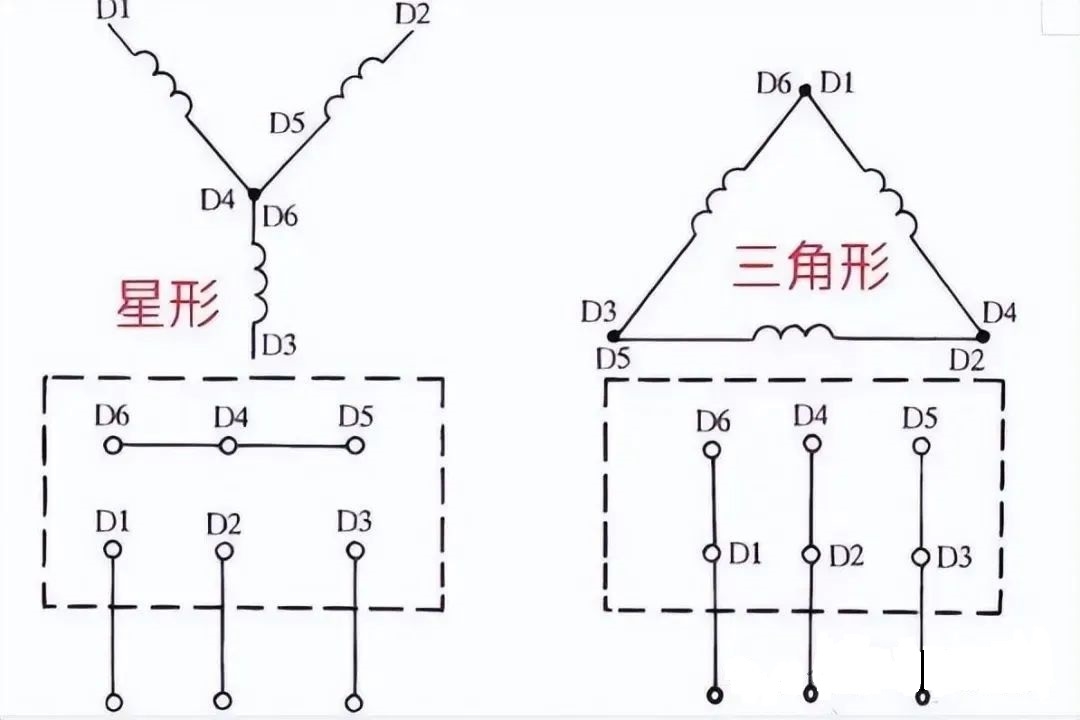Block Declaration and Return Value Syntax
The syntax for block declaration and return values is as follows.
| Block Type | Syntax | Example |
|---|---|---|
| Function (FC) |
FUNC [TI] ON <name> [:return_data_type]<declaration> |
FUNCTION "My_Function" : Int FUNCTION "My_Function" : Void |
| Function Block (FB) |
FUNCTION_BLOCK <name><declaration> |
FUNCTION_BLOCK "My_FunctionBlock" |
| Organization Block (OB) |
[OR]GANIZATION_BLOCK <name><declaration> |
ORGANIZATION_BLOCK "My_OrganizationBlock" |
Text Block Interface Sections
Text block interfaces are divided into different declaration sections. Each section is identified by specific keywords. Different sections can be used depending on the block type.
The order of declaration sections is not significant. A section may appear multiple times within a block interface.
Declaration Section Syntax
The following table lists the syntax structures used for declaration sections.
| Declaration Section | Syntax |
|---|---|
| Input parameters |
VAR_INPUT [ ] <declaration> END_VAR |
| Output parameters |
VAR_OUTPUT [ ] <declaration> END_VAR |
| In/out parameters |
VAR_IN_OUT [ ] <declaration> END_VAR |
| Temporary local data |
VAR_TEMP <declaration> END_VAR |
| Static local data |
VAR [ ] <declaration> END_VAR |
| Constants |
VAR CONSTANT <declaration> END_VAR |
Variable and Constant Declaration Syntax
The syntax used to declare variables and constants is shown below.
| Declaration | Syntax | Example |
|---|---|---|
| Variable |
<name> : <data_type> [:= <value>]; |
myBit : BOOL; myBit : BOOL := true; |
| Constant |
<name> : <data_type> := <value>; |
[PI] : REAL := 3.141592; myInt: INT := INT#16#7FFF; myString: STRING := 'hello'; |
| AT declaration |
<name> AT <reference_variable_name> : <data_type>; |
myReferenceToVar2 AT Var_2 : Int; |
ARRAY Declarations
The ARRAY data type represents a data structure consisting of a fixed number of elements with the same data type.
The syntax used to declare ARRAY types is shown below.
| Declaration | Syntax | Example |
|---|---|---|
| ARRAY |
<name> : ARRAY [lower..upper] OF <data_type> := [<initialization_list>]; |
MyARRAY_1 : ARRAY[0..7] OF BOOL; MyARRAY_1 : ARRAY[0..7] OF BOOL := [1,1,0,0,0,1,0,0]; |
| ARRAY with variable bounds |
<name> : ARRAY [*] OF <data_type>; |
MyARRAY_1 : ARRAY[*] OF INT; MyARRAY_2 : ARRAY[*, *, *] OF INT; |
| ARRAY with local-constant bounds |
<name> : ARRAY [#<const_name>..#<const_name>] OF <data_type> := [<initialization_list>]; |
MyARRAY_1 : ARRAY[#LocConst1..#LocConst2] OF INT; MyARRAY_2 : ARRAY[1..#LocConst] OF INT; MyARRAY_3 : ARRAY[1..#LocConst] OF INT := [1,1,0,0]; |
| ARRAY with global-constant bounds |
<name> : ARRAY ["<const_name>".."<const_name>"] OF <data_type> := [<initialization_list>]; |
MyARRAY_1 : ARRAY["GlobConst1".."GlobConst2"] OF INT; MyARRAY_2 : ARRAY[1.."GlobConst", 2..5,#l..#u] OF INT; MyARRAY_3 : ARRAY[1.."GlobConst"] OF INT:= [1,1,0,0]; |
| ARRAY of STRUCT type |
<name> : ARRAY[lower..upper] OF Struct <element_name> : <data_type>; <element_name> : <data_type>; ... END_STRUCT := [<initialization_list>]; |
MyARRAY_1 : Array[0..1] OF Struct mem_1 : Int; mem_2 : Int; END_STRUCT := [ (2,4), (22,44) ]; |
| ARRAY of a UDT |
<name> : ARRAY[lower..upper] OF "" := [<parameter_list>]; |
MyARRAY_1 : Array[0..1] OF MyType := [ (2,4),(22,44) ]; |
STRING and WSTRING Declarations
STRING and WSTRING data types store multiple characters of a string. Any ASCII character may be used in a string. Characters are enclosed in single quotes.
An initial default value may be specified for the string.
During operand declaration, a maximum string length can be specified using square brackets after the STRING or WSTRING keyword (for example WSTRING[4]). The maximum length can be a literal value or a local/global constant.
If no maximum length is specified, the operand length defaults to 254 characters.
| Declaration | Syntax | Example |
|---|---|---|
| STRING |
: STRING [:= <value>]; |
myString: STRING; myString: STRING := 'hello'; |
| WSTRING |
: WSTRING [:= <value>]; |
myWstring: WSTRING; myWstring_var: WSTRING := 'helloWorld'; |
| STRING with defined maximum length |
: STRING[[Constant]]; |
myString: STRING[10]; myString: STRING["globConst"]; myString: STRING[#locConst]; |
 ALLPCB
ALLPCB








